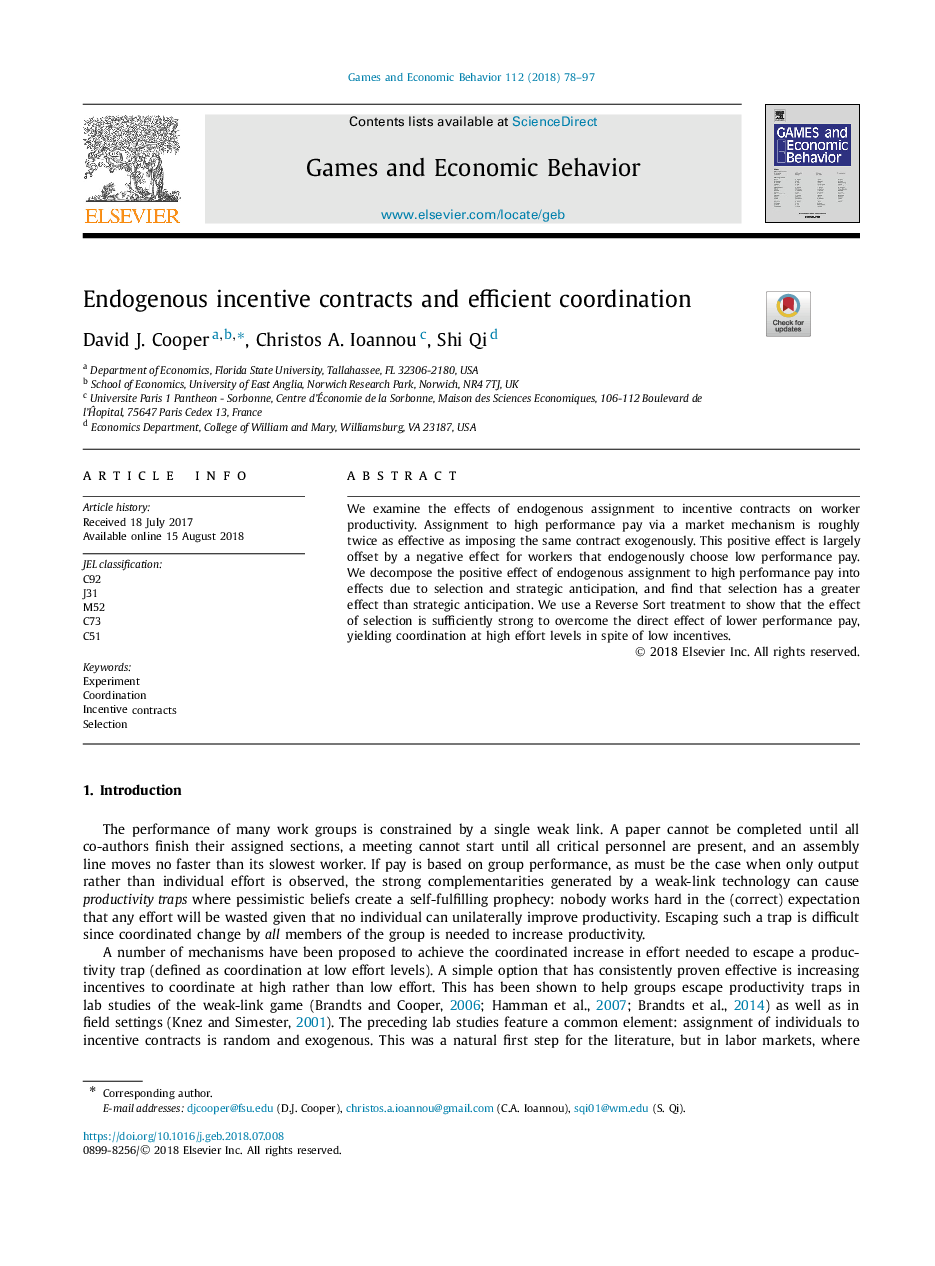| Article ID | Journal | Published Year | Pages | File Type |
|---|---|---|---|---|
| 9953023 | Games and Economic Behavior | 2018 | 20 Pages |
Abstract
We examine the effects of endogenous assignment to incentive contracts on worker productivity. Assignment to high performance pay via a market mechanism is roughly twice as effective as imposing the same contract exogenously. This positive effect is largely offset by a negative effect for workers that endogenously choose low performance pay. We decompose the positive effect of endogenous assignment to high performance pay into effects due to selection and strategic anticipation, and find that selection has a greater effect than strategic anticipation. We use a Reverse Sort treatment to show that the effect of selection is sufficiently strong to overcome the direct effect of lower performance pay, yielding coordination at high effort levels in spite of low incentives.
Related Topics
Social Sciences and Humanities
Economics, Econometrics and Finance
Economics and Econometrics
Authors
David J. Cooper, Christos A. Ioannou, Shi Qi,
